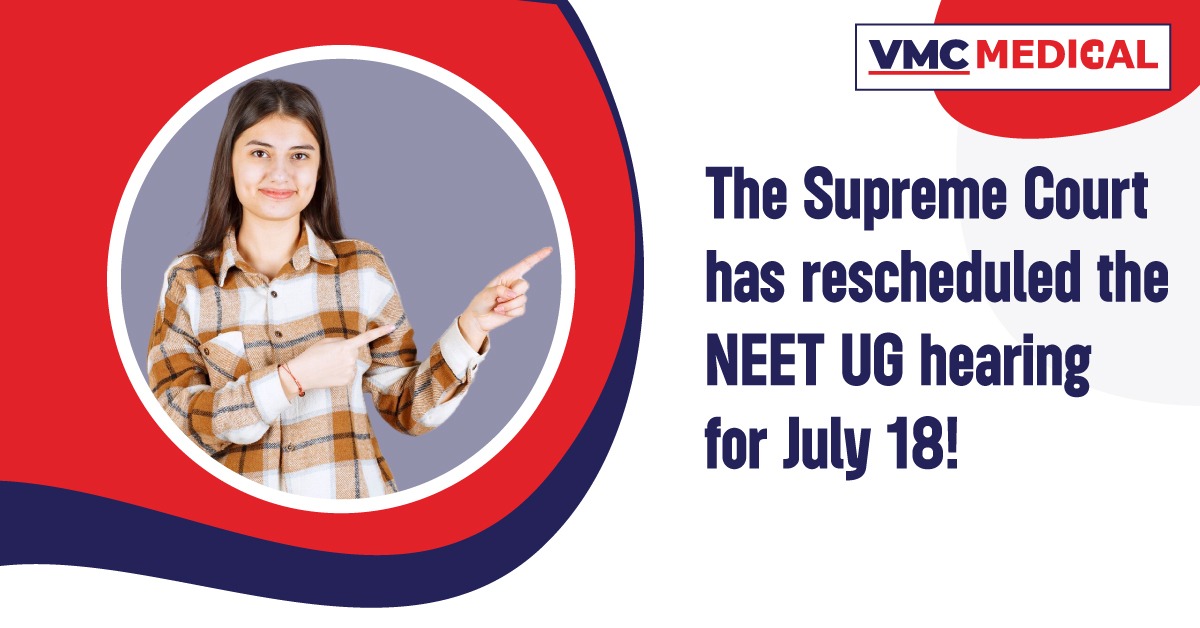The Supreme Court has rescheduled the NEET UG hearing for July 18!
 Posted On
Posted On
195 total views, 1 views today
In recent developments concerning the National Eligibility cum Entrance Test for Undergraduate courses (NEET UG) 2024, the Supreme Court of India has once again deferred its hearing on the matter to July 18. This decision comes amidst ongoing scrutiny over alleged irregularities in the examination process, prompting extensive legal and procedural evaluations.
The adjournment was necessitated by pending responses from key stakeholders including the Centre and the National Testing Agency (NTA), highlighting the complexity and sensitivity surrounding the issue. Solicitor General Tushar Mehta’s unavailability on the proposed hearing date of July 15 further influenced the scheduling of the next hearing session.
Central to the discussion are concerns raised by petitioners regarding the integrity of NEET UG 2024 results. Recent submissions by the Centre underscored findings from data analytics conducted by IIT Madras, indicating no substantial anomalies or localized advantages affecting the outcome. This assertion follows the Supreme Court’s inquiry into the feasibility of using data analytics to detect and address potential malpractices.
The scrutiny intensified after the Centre’s acknowledgment that while an overall increase in marks was noted, attributed partly to a 25% reduction in syllabus, there was no discernible pattern suggesting mass malpractice. Such assurances, however, have not assuaged all concerns, especially in light of protests and grievances voiced post-results.
NEET UG 2024 witnessed participation from over 23.33 lakh students across numerous examination centers both in India and abroad. The scale of this examination, aimed at determining admission into medical and dental colleges, underscores its national significance and the imperative of maintaining procedural integrity.
Amidst the legal proceedings, students eagerly await updates on the commencement of counselling sessions, slated to begin in the third week of July. The Centre has outlined a phased approach to counselling, emphasizing stringent measures to address any identified malpractice retrospectively during the counselling process or beyond.
The backdrop to these developments includes allegations ranging from inflated toppers’ numbers to concerns over potential paper leaks and other administrative irregularities. Such issues have sparked widespread discontent and calls for transparency and accountability within the examination framework.
The Supreme Court’s role in this context is pivotal, as it navigates through legal arguments and empirical evidence to ensure fairness and uphold the sanctity of the examination process. The adjournment of hearings reflects a considered approach to address all pertinent issues comprehensively.
Looking ahead, the NEET UG 2024 saga serves as a critical juncture in India’s educational landscape, prompting introspection and reform within the examination administration and oversight mechanisms. The assurance of fairness and equity remains paramount, not only for the current cohort of aspirants but also for the credibility of future examination cycles.
As the legal proceedings resume on July 18, stakeholders anticipate further clarity on the outcomes of the ongoing deliberations. The implications extend beyond the immediate concerns of the NEET UG 2024 candidates to broader reforms aimed at strengthening the transparency and resilience of India’s competitive examination ecosystem.
In conclusion, while challenges persist, the pursuit of justice and procedural rectitude remains steadfast. The NEET UG 2024 episode underscores the imperative of continual improvement and vigilance in safeguarding the interests of students and upholding the integrity of India’s educational assessments. This blog aims to provide a nuanced perspective on the evolving narrative surrounding NEET UG 2024, encapsulating the complexities and implications for all stakeholders involved. As developments unfold, the discourse surrounding competitive examinations in India is poised for renewed scrutiny and reform, guided by principles of fairness and accountability.




